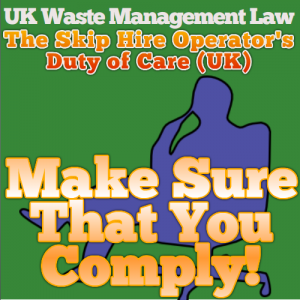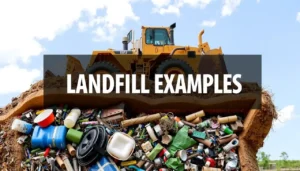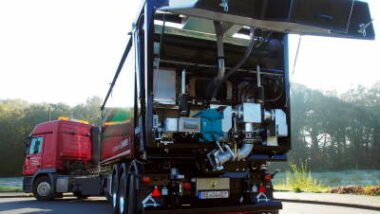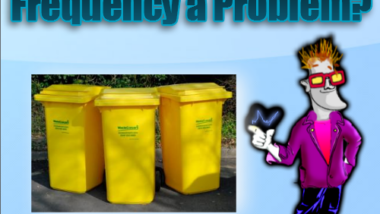Skip Hire operator's Duty of Care (UK) requirements for Skip Hire Service Companies are poorly understood by the public and even by some skip hire companies and other waste transport operators.
Why the UK's Duty of Care Regulations Were Introduced for the Transport Sector
Most nations suffer fly-tipping problems and the UK response has been to introduce a legal “duty of care” on the originator of waste, to act responsibly when engaging others to remove, transport, and dispose of waste.
We have all seen documentaries and information about “rogue” waste traders and the problem has grown worse despite the existence of legislation in the UK, which, if fully applied by all concerned, would be effective.
The Skip Hire Operator's Duty of Care (UK) – Also Applies to All Waste Transporters
Be aware that if you are a commercial trader producing waste, or even just a householder hiring a skip, it is your legal duty, as well as the trader’s, to ensure the completion of all record-keeping and waste consignment notifications required by the “Duty of Care”.
All those in the waste transport sector need to make themselves aware of the “Duty of Care in waste transport” requirements. Newcomers to the industry should as a minimum contact their local council for information.
Also, every waste producer must make sure that the necessary waste consignment paperwork required under the Duty of Care regulations is completed. If the appointed waste contractor does not do this, as in the end, any commercial producers bear a responsibility whoever actually removes and transports the waste.
 These regulations have been created to reduce and halt fly-tipping which can only continue to occur if the waste producer turns a blind eye to the proper completion of procedures in force under the Duty of Care regulations.
These regulations have been created to reduce and halt fly-tipping which can only continue to occur if the waste producer turns a blind eye to the proper completion of procedures in force under the Duty of Care regulations.
As a minimum standard of good practice, all commercial waste producers in all countries, should (whether Duty of Care Regulations – are in force or not), ensure that the following information is provided by all waste disposal service providers before the removal and transport of waste:-
- Full business name and address,
- Names and ages of directors,
- Contact details and website address, and
- Several years of the latest accounts available
- Details of registration.
Update on The “Duty of Care” in the UK (2020)
Possibly, the most fundamental legislation for all organizations. The legislation, which requires a “duty of care” towards the storage and transfer of waste and establishes the use of the “Transfer Note” as a record of waste transfers.
It was established, originally, by The Environmental Protection (Duty of Care) Regulations 1991 (1991 No. 2839) and it is here that many websites need updating. These requirements are, now, in The Waste (England and Wales) Regulations 2011 (2011 No. 988) for England and Wales.
Separate legislation: The Environmental Protection (Duty of Care) (Scotland) Regulations 2014 (2014 No. 4) in Scotland & The Controlled Waste (Duty of Care) Regulations (Northern Ireland) 2002 (2002 No. 271) for Northern Ireland has been established.
Even more importantly, the Duty of Care is implemented through a Code of Practice with separate versions for England and Wales, Scotland & Northern Ireland.
List of Wastes
In order to meet EU legislation and to aid the completion of the Duty of Care Transfer Note with the six-digit Waste Code, legislation in the form of The List of Wastes (England) Regulations 2005 (2005 No. 895) came into force.
However, this legislation has been revoked in all Home Countries within the United Kingdom by amending legislation relating to Hazardous Waste as the Waste Codes are, also, used on the Hazardous Waste Consignment Note.
All the legislation, now, refers to the Commission Decision 2014/955/EU amending Decision 2000/532/EC on the list of waste pursuant to Directive 2008/98/EC of the European Parliament and of the Council and subsequent amendment.
Waste Carrier Legislation
In conjunction with the Duty of Care, the requirement for Waste Carriers was introduced in 1991 through The Controlled Waste (Registration of Carriers and Seizure of Vehicles) Regulations 1991 (1991 No. 1624).
These Regulations have been revoked and replaced by The Waste (England and Wales) Regulations 2011 (2011 No. 988) in England and Wales for the registration requirements and the seizure of property in The Control of Waste (Dealing with Seized Property) (England and Wales) Regulations 2015 (SI 2015 No. 426).
However, in Scotland, the original Regulations: The Controlled Waste (Registration of Carriers and Seizure of Vehicles) Regulations 1991 (1991 No. 1624) remain in-force.
Within Northern Ireland, there are two Regulations covering the registration and seizure through the Controlled Waste (Registration of Carriers and Seizure of Vehicles) Regulations (Northern Ireland) 1999 (1999 No. 362) and The Controlled Waste (Seizure of Property) Regulations (Northern Ireland) 2013 (2013 No. 260).
The definition of “Controlled Waste”
Originally, The Controlled Waste Regulations 1992 (1992 No. 588) was used to define “controlled waste” and to classify waste as being either “household waste, industrial waste or commercial waste”.
Source: emsmastery.com
This is an update of an article originally published in Oct 2014.
Landfill Examples – Designs and Operation
Modern sanitary landfills integrate engineered systems for environmental protection, while bioreactor landfills boost waste decomposition for energy. Specialized secure landfills use double-liner systems for safety. Effective landfill designs maximise capacity via strategic materials and techniques, with advanced monitoring technologies ensuring compliance and sustainability. Discover fascinating landfill examples…
Waste Removal Services Companies – Which of 8 Types is Best for You?
Waste removal services companies are an essential part of modern society, providing a vital service for households and businesses alike. From general waste to hazardous materials, waste removal services companies ensure that the rubbish we generate is collected, transported, and disposed of in a safe and responsible manner. Choosing the best waste removal services company […]
The Problem of Expansive Soils
The Problem of Expansive Soils: When building or buying a new house, property owners usually obsess over style, furniture, gardens, pools – but they can forget one critical factor: the soil. Expansive soils can cause damage to buildings. Research has shown that one in four houses in the US has been somehow affected by this. […]
Small-Scale Separators for Dairy Farms and AD Plants
New Small-Scale Separator is Big on Results Following the success of its acclaimed Separators since their launch in 2016, Borger has released a new, affordable, 25 m³/h model, suitable for dairy farmers with herds of up to 150 – and for small-scale biogas operators. The launch of this compact new Bioselect RC 25 Small-Scale Slurry Separators (which […]









